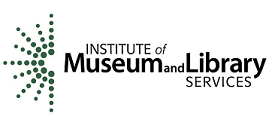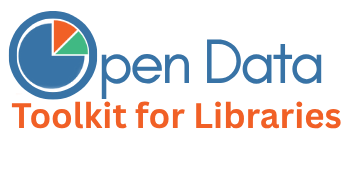Local open data made simple: A toolkit for any-sized library
Local open data—publicly accessible, community-specific datasets—offers public libraries a unique opportunity to deepen their role as information and community hubs. By publishing and curating local open data, libraries can empower residents to explore issues in their communities that directly affect their lives, from housing and transportation to public health and education.
For small libraries with limited resources, the prospect of open data may seem daunting. The newly published Open Data Toolkit for Libraries, developed by the Asotin County Library in Washington state with support from an Institute of Museum and Library Services (IMLS) grant, can help bridge that gap, making this work possible for any-sized library. This comprehensive, step-by-step guide is specifically designed to help small public libraries navigate the process of publishing local open data. With practical examples, downloadable templates, worksheets, and video tutorials, the toolkit equips libraries with the necessary tools to get started.
What the toolkit offers
The Open Data Toolkit for Libraries provides a clear roadmap for libraries interested in exploring the role of local open data in their community. In the toolkit, you’ll find:
- An introduction to open data, including why it matters and why libraries are uniquely positioned to publish open data and educate the public about it.
- A guide for getting started in assessing the administrative, financial, human, and technical resources needed. Includes a sample Open Data Policy to help libraries lay the groundwork.
- A straightforward outline of the basic steps for open data publication.
- Tips on selecting datasets, recruiting community partners, and conducting focus groups to ensure the data reflects community needs.
- An explanation of different types of open licenses and their importance in ensuring data accessibility.
- Best practices for creating high-quality, usable data. Introduces the Open Data Ingestion Tool and explains how it works.
- Strategies for making data accessible and discoverable, whether through government portals, library websites, or platforms like GitHub and Kaggle.
- Examples of how data visualizations can be used to tell a story for decision-making, advocacy, and community engagement. Includes tutorials on using tools like PowerBI and Tableau to create compelling visualizations.
- Tips for promoting the library’s open data collection, engaging with the community, and tracking the impact of their efforts. Explores the Civic Tech movement as a way to foster innovation and collaboration.
- A curated list of further reading, websites, and blog posts for libraries seeking to deepen their understanding of open data.
Download the Open Data Toolkit for Libraries to get started
The Open Data Toolkit for Libraries is a valuable resource that empowers public libraries to take their first steps into the world of open data. By contributing to local open data, libraries can bring new value to strategic partnerships and also become catalysts for civic innovation and community improvement.
This project was made possible by support from the
Institute of Museum and Library Services (project number LG-00-19-0289-19).


Related topics
October 2025
